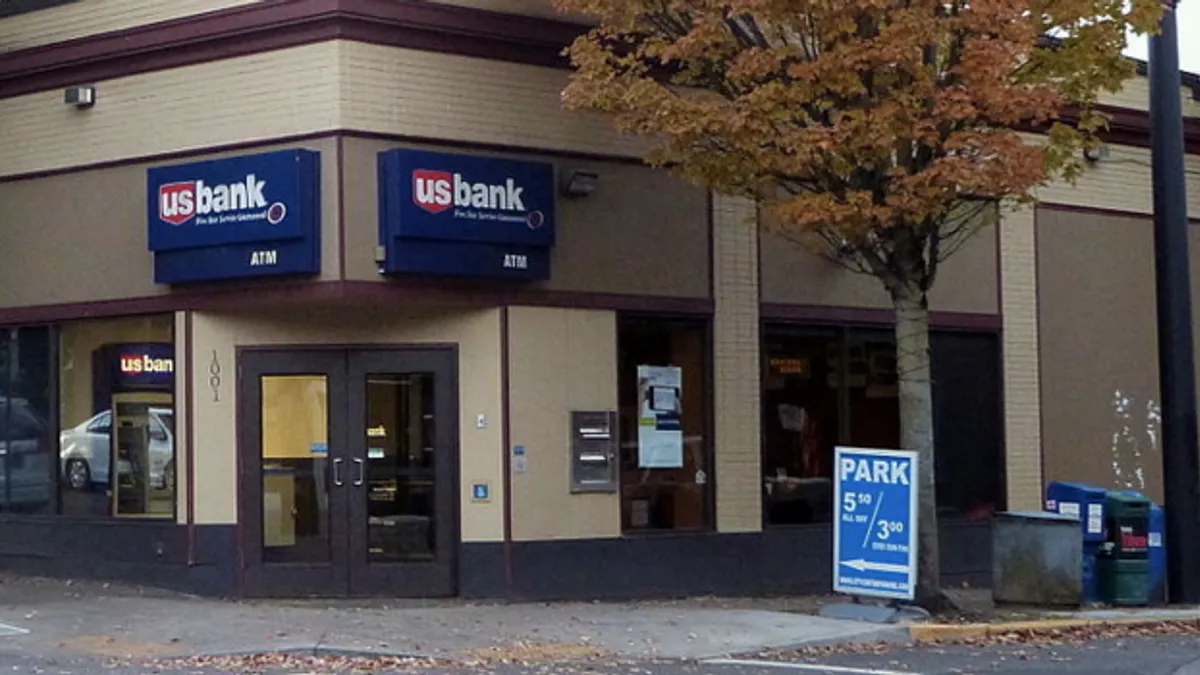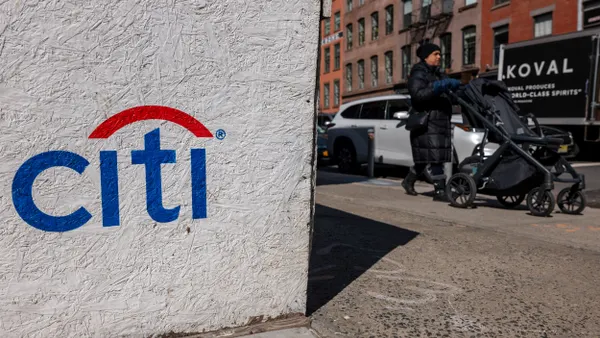Dive Brief:
- Small-business owners are suing JPMorgan Chase, Wells Fargo, Bank of America and U.S. Bank, alleging the banks prioritized larger loans in the Paycheck Protection Program (PPP) — because of the fees attached — rather than processing applications on a first-come, first-served basis.
-
Plaintiffs cited SBA data that indicated lenders reportedly processed twice as many $150,000 and under loans in the final three days as compared to the first 11 days.
-
The structure of the program allows banks to earn 5% origination fees on loans of up to $350,000; 3% on loans from $350,000 to $2 million; and 1% on loans between $2 million and $10 million, according to Bloomberg. That adds up to $17,500 for processing a $350,000 loan, compared with $100,000 on a $10 million loan.
Dive Insight:
Each of the four banks "concealed from the public that it was reshuffling the PPP applications it received and prioritizing the applications that would make the bank the most money," plaintiffs claim in the class-action lawsuits, filed Sunday in the U.S. District Court for the Central District of California.
"Had [the bank] been honest, small businesses could have (and would have) submitted their PPP applications to other financial institutions that were processing applications on a first-come, first-served basis," the lawsuits said.
Characterizing the application process as first-come, first-served — and then bypassing that to favor larger loans — would violate California’s Unfair Competition Law, the suits claim.
"If applications were being processed on a first-come, first-served basis as required, the percentage change in applications submitted in the last three days of the program would be consistent among all application types," the plaintiffs said in the lawsuit.
The SBA data they cite may make for a difficult paper trail. It doesn't break out how many loans each bank made on specific days, nor of what size. Nor does it specifically identify lenders. However, one SBA report shows the largest lender, "Lender 1," as having distributed more than $14 billion in PPP funds. JPMorgan Chase later identified itself as that lender.
The nation's largest bank declined to comment on the case but said in a frequently answered questions post on its website that its smallest business clients received more than twice as many loans — about 18,000 — as larger customers of its commercial banking unit. "We have different lines of business that serve different types of clients," the bank said. "Each business worked separately on loans for its customers. ... Our intent was to serve as many clients as possible, not to prioritize any clients over others."
A Bank of America spokesman, Bill Halldin, told The New York Times, "We deny the allegations."
U.S. Bank also repudiated the lawsuit’s claims. "We plan to vigorously defend ourselves as it is without merit," the bank said in a statement, according to Politico. "The cumulative industry data provided by the SBA is not reflective of U.S. Bank’s practices or results. We continue to serve our small business customers and are prepared to process loans as quickly as possible should additional funds become available."
Wells Fargo declined to comment, but said it was "working as quickly as possible to assist small business customers with the Paycheck Protection Program."
The San Francisco-based lender actually did — as the plaintiffs recommended — encourage borrowers to seek out another bank.
"While you remain in queue based upon when you submitted your initial interest, due to high demand we are not able to begin your application at this time," the bank said in an April 10 email to customers, according to the San Francisco Business Journal. "Since there is a limited amount of funds approved by the SBA for the Paycheck Protection Program, we want you to be aware of your options.
"You may want to apply elsewhere to increase your chances of receiving a loan before the funds run out," the email continued.
Each suit claims financial harm exceeds at least $5 million, according to Bloomberg Law.
The California suits are not the first against banks in relation to the PPP rollout. A group of small-business owners in Maryland sued Bank of America on the program's first day for saying it would only accept applications from existing customers. Such a measure would reduce the time it takes the bank to verify the identities of those seeking loans, and thus hasten processing times.














